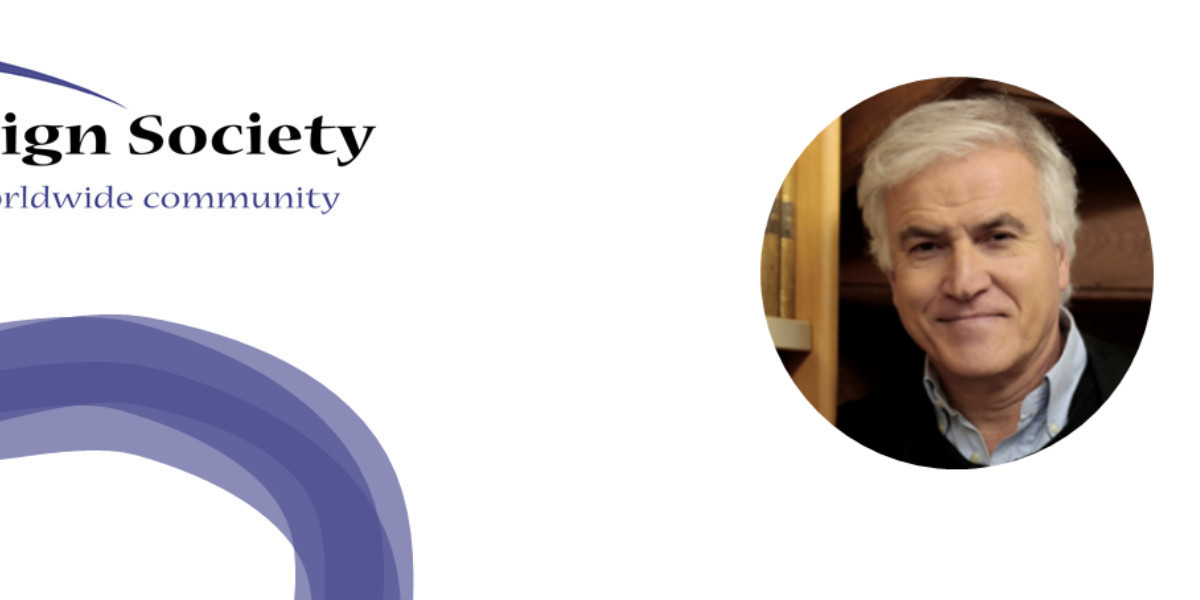The Design Society Seminar Series: From Management Science to Design Theory and Beyond
... A story of scientific ventures and research friendships - presentation by Armand Hatchuel
Description of the presentation by Armand Hatchuel - Professor at MinesParisTech/PSL University and Fellow of the Design Socety
In this presentation I give an overview of my research activity that hopefully illustrates the role of the Design Society and the value of research friendships for the advancement of Design science. After graduating as an Engineer from Paris School of Mines, I began my academic career with a PhD in Operations Research and management science. I was equally interested by the two faces of the field: i) Decision science and combinatorial maths; ii) organization and management theory. In my Phd work, I perceived the research potential of understanding their interactions [1]. This idea was first confirmed in the study of new dynamic manufacturing systems which needed adequate coupling between formal heuristics and organizational processes [2].
Applied to engineering and R&D departments this approach revealed the changing role of experts [3] and new organizational problems. Machine-based design theory (design systematics) and Decision-based design theory (Herbert Simon’s) [4] were no more adapted to highly innovative contexts. Field research and advanced mathematics (generic extensions in Set theory) led us to C-K theory [5]. It opened new research paths and attracted industrial sponsors [6] who experimented fruitfully C-K-inspired design methods. To join research efforts and integrate old and new theories, the board of the Design society asked Yoram Reich and myself, to launch a Design Theory SIG in 2007.
Such enduring collective work was key for the understanding of C-K theory as a canonical model that could reinterpret design regimes or develop new enriched ones (new types of Knowledge, PSI approach.. cultural values) to better cope with contemporary design issues (digitalization, sustainability, Climate change….). Beyond design, C-K theory appeared as a basic model of generative logic (invention or discovery) useful in other sciences: psychology of creativity, history of technology, management theory, philosophy of science and Art education...Lastly, with other authors, we developed a vision of the corporation as a responsible collective design process that contributed to a new corporate law in France (Loi Pacte).
With hindsight, keeping a transdisciplinary perspective [7] was the backbone of my work. Yet when needed, special research in maths, design history or management had to be freely undertaken Therefore, such journey was not possible without long lasting collective work with colleagues like Benoit Weil, Pascal Le Masson, Yoram Reich, Eswaran Subrahamanian ( Design theory SIG chairs and organizers) with whom I share many findings and perspectives [8]. It is worth reminding that new scientific endeavors need collective research and friendship. Fortunately, this is what the Design society offers generously [9].
References
[1] Hatchuel A,. Molet H. (1986), Rational modelling in understanding and aiding human decision making : about two case studies, European Journal of Operations Research , 24, 1, p.178-186.
[2] Hatchuel A.. Saïdi-Kabèche D, Sardas J.C. (1997). Multi-stage production systems: a new dynamic anticipation approach. International Journal of Production Research, Taylor & Francis, 1997, 35 (3), pp.867-886.
[3] Hatchuel A. and Weil B., Experts in Organizations, Walter de Gruyter 1995 .
[4] Hatchuel A. (2001), Towards design theory and expandable rationality : the unfinished program of Herbert Simon, Journal of Management and Governance, 3-4, p.260-273
[5] Hatchuel A., Weil B., (2003), A new approach of innovative design ; an introduction to C-K theory, Proceedings of ICED 14th Conference.
[6] Companies that sponsored our work also inspired us by their own innovations ( RATP (Paris transport), Thales, Renault, Airbus, SNCF (French Railways), Urgo, Dassault Systems…)
[7] Segrestin B., Aggeri F., David A., Le Masson P. (2017) Armand Hatchuel and the Refoundation of Management Research: Design Theory and the Epistemology of Collective Action. In: Szabla D.B., Pasmore W.A., Barnes M.A., Gipson A.N. (eds) The Palgrave Handbook of Organizational Change Thinkers. Palgrave Macmillan, Cham. p.575-588
[8] Hatchuel, A., Le Masson, P., Reich, Y. , E. Subrahamanian,(2018) . Design theory: a foundation of a new paradigm for design science and engineering. Res Eng Design 29, 5–21.
[9] Chris Mc Mahon, Sandor Vajna, Ehud Kroll, Frido Smulders, john Gero, Claudia Eckert and many others are major contributors to the SIG and to the related design theory doctoral school.



